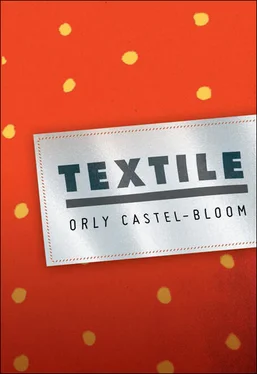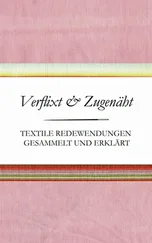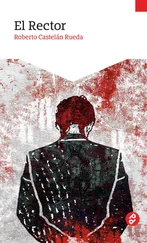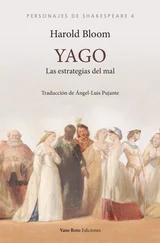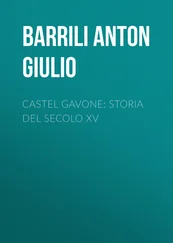Lately he hardly spoke to her, as opposed to periods when he even talked too much. And she, who suffered from severe attention deficit and hyperactivity disorder (ADHD), was unable to listen to such long speeches of at least an hour against globalization and destruction and the exploitation of Africa and the children in Southeast Asia. The communication between these two suffered from severe limitations, since in addition to Lirit’s ADHD, Shlomi’s verbal skills were poor. He would sometimes begin sentences with the word “what,” and the words that followed were not always in the right order, and he added unnecessary similes, and repeated them several times, and all this verbal inflorescence was supposed to be connected to the initial “what.”
Lirit said “Good,” and “No problem” to her mother, in order to get the conversation over. And even before she had succeeded in taking in the gist of her mother’s words, before she had started to examine in theory the possible effects of leaving the farm or her relations with Shlomi, the latter rose from the sofa, took a few steps, walked past her, went outside, and called her to come and see something, this time at the bottom of the garden. The red worms had multiplied and fattened in the compost heap. She hurried over and expressed exaggerated admiration for the compost and the size of the worms, whatever it took to stop him sulking and to moderate this negativity of his.
AFTER SHE HAD EXPRESSED such enthusiasm for the work of the worms, Shlomi smiled his good smile at her and she breathed a sigh of relief. He wasn’t sulking and he wasn’t cross with her, he was simply absorbed in himself, as people sometimes were absorbed in themselves, he explained to her on his own initiative without her asking. She sat down on the old sofa and Shlomi went to fetch his latest photographs. One of his photographs had once been published in The Voice of the South for twenty-seven dollars.
Shlomi was not only an idealistic organic farmer, but also a gifted photographer, and he was trying to get into the journalism market in the south of the country. This time he dwelled only on his latest photographs, especially of the floods in the Negev, and Lirit sat on his lap and said:
“How lovely,” and “That’s amazing,” and “This one is to die for.”
“Tell me,” Shlomi asked his girlfriend, and shook her off him because her embrace was a little suffocating and he felt hot, “do you think I could offer these pictures to the Gates of the Negev local council as a calendar? That means hundreds of dollars. What I’ve got here isn’t only the floods, in other words ruin and destruction. Take a look at this one. .” He showed her a close up of flowers. “And this one. . and this one. . I think we’re going to have a fantastic spring this year, by the way.”
“If not Gates of the Negev, then some other local council,” said Lirit. “A person would have to be an idiot not to take them.” She stood up, changed into her smoking clothes, and went outside, accompanying the entire process with facial grimaces that related to her conversation with her mother shortly before.
She knew that her mother wanted her, when the day came, to inherit the factory and continue the tradition, and she wasn’t at all sure that she wanted to, but in the meantime no need had arisen for her to express any wish in the matter. Her mother was a strong, healthy woman. It only annoyed her that Dael showed no interest in the pajama factory, and that it was so clear to their mother that she was the one who would take command of the family concern while Dael was expected to charge ahead. The guy had already acquired a profession in the army, not like her, who in her army service had only learned how to grab hold of collapsing people a minute before their bodies hit the floor or some piece of furniture.
And indeed, Dael had organized a future for himself after the army. The day after his discharge he was going to fly straight to Hollywood and become a paparazzi to the stars. Judging by his success as a sharp shooter, the Hollywood stars were in for a big surprise. Dael thought that after he made his first fortune from his photos he would open a school right there in Los Angeles for paparazzi photographers, who would have to pass strict tests in order to be accepted, and whose year-long studies would cost them tens of thousands of dollars.
THE NIGHTY-NIGHT pajama factory had been founded by Audrey Greenholtz, Mandy’s mother, in the middle of the sixties, soon after the two of them arrived in Israel from the former Rhodesia, when the child was eight.
For years Audrey held to the opinion that the factory should serve only the ultra-Orthodox population, since the ultra-Orthodox population was the most stable thing in Israel. Any deviation from this target population would spell the end of the factory, in the opinion of its founder.
Difficult life circumstances had made Audrey Greenholtz into a fighter as well as a schemer. She thought it was a mistake for mothers to be soft on their daughters, and she raised her daughter to be tough, drilling it into her that giving in wasn’t an option, no matter what.
When the Rhodesian police came to the Greenholtz family home and informed the mother that the body of her husband, Aaron Greenholtz, had been found headless on the roadside, she did not collapse or start screaming, but carried on resourcefully. This resourcefulness she tried to pass on to her daughter Mandy, who tried to pass it on to her daughter Lirit, with diminishing success from generation to generation.
When Audrey died in 1989, and Mandy took charge, she put up a dummy tombstone to her father, Aaron Greenholtz, in the Kiryat Shaul cemetery, according to whose inscription his memory would never fade. But the truth was that his memory didn’t exist. Mandy had forgotten him completely.
In the middle of the nineties, Mandy thought of adding another line to her father’s tombstone, something along the lines of “Murdered in race riots in Rhodesia, 19—” but she didn’t do it.
AUDREY COULDN’T STAND Israel and she never stopped telling her daughter and the few friends she had here that it was only Aaron’s death that had forced her to come to the Levant, and that nothing but terrible distress would have brought her to a place of no distinction, full of men with weak characters. She was enraged against Israeli men, who gave her the cold shoulder because she already had a daughter from a marriage that had ended in death, and who regarded her as irrelevant.
During her first days in Israel, Audrey acted out of character — and collapsed. She barely brought herself to acquire a three-roomed apartment in Arlozorov Street in Tel Aviv. She was told that this was classic North Tel Aviv, and that it would always remain classic.
But six months after arriving in Israel, Audrey got out of bed and she never fell again. She called in renovators, who turned right into left and ceiling into floor. During the period of the renovations the two of them stayed in the old Sheraton Hotel, which no longer exists and today there is a big hole where it used to be. Every morning she set out from the hotel to take three or four buses to Netanya, to the factory she set up there in the industrial zone.
Audrey herself invented the name Nighty-Night. Her knowledge of the Hebrew language was nothing to write home about, and she thought the name was clear enough for people in the Levant. She acquired a few classic Singer sewing machines, and insisted on handwork even when technology made faster and more efficient machines available.
Only in this way can the connection of the material with the thread be felt, while the movement of the foot accelerates the blood circulation and improves the concentration of the workers, Audrey explained her conservatism.
Читать дальше
